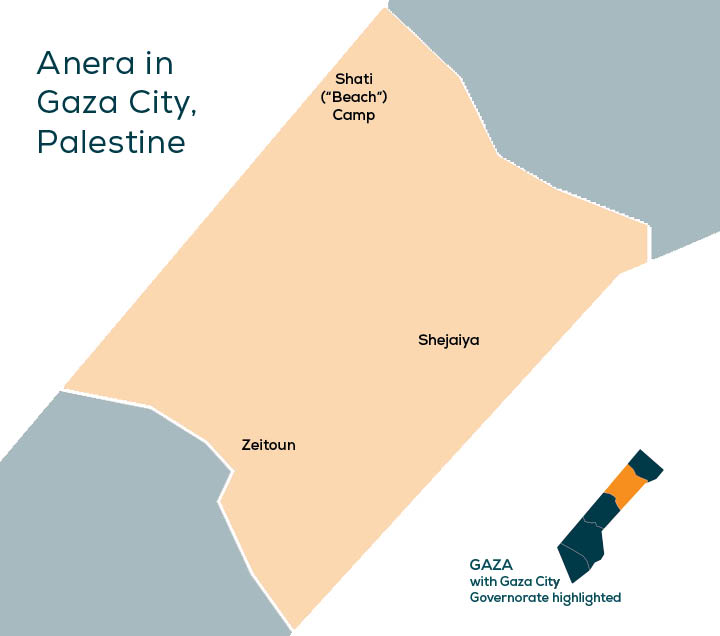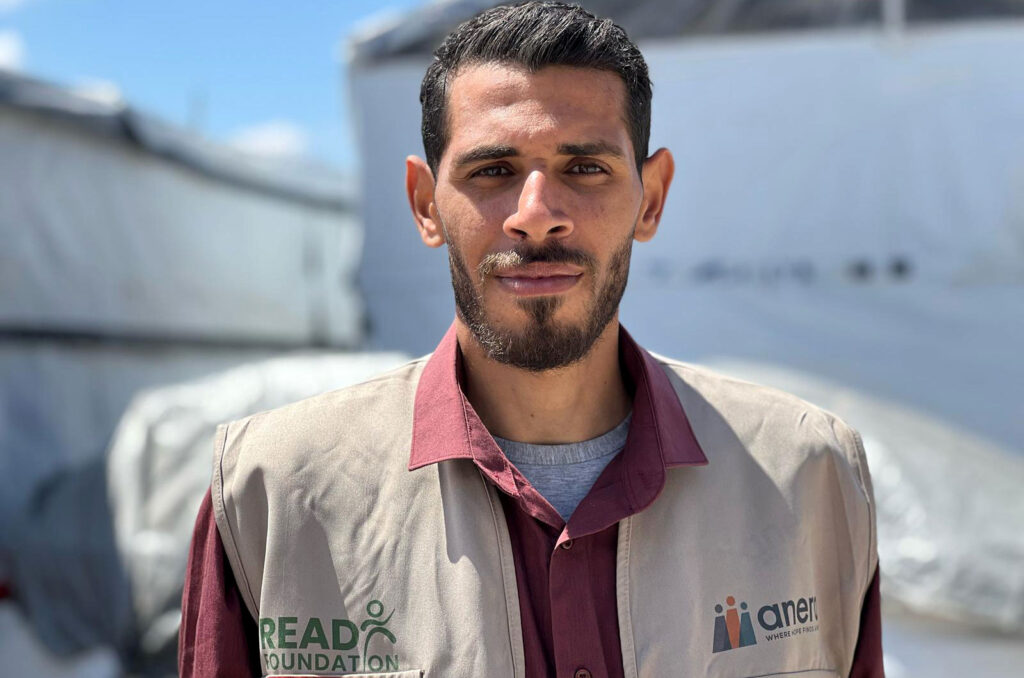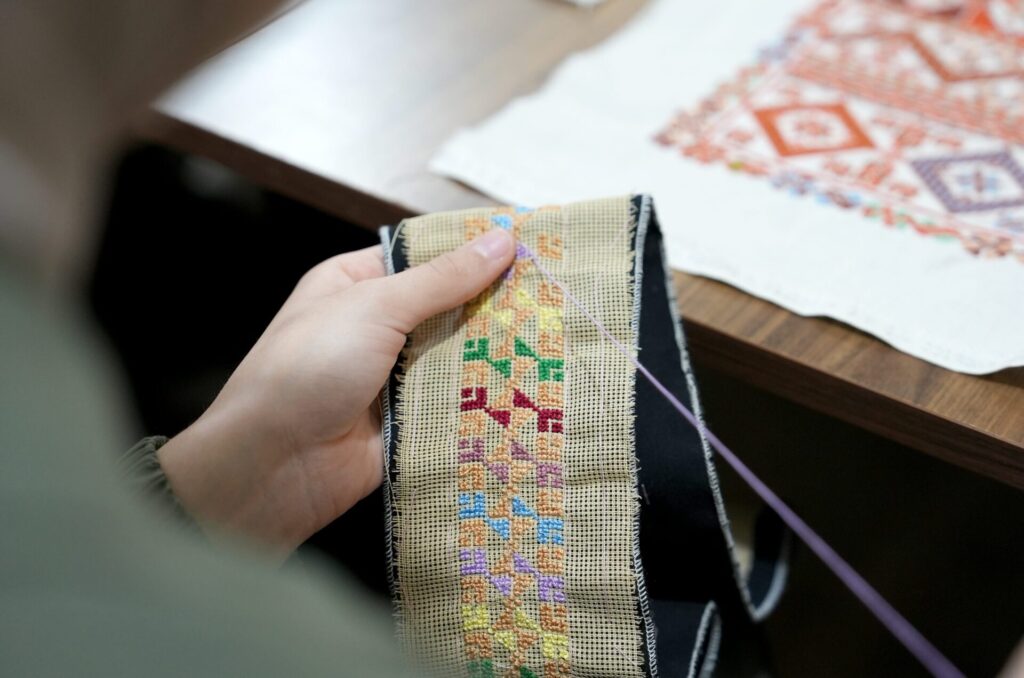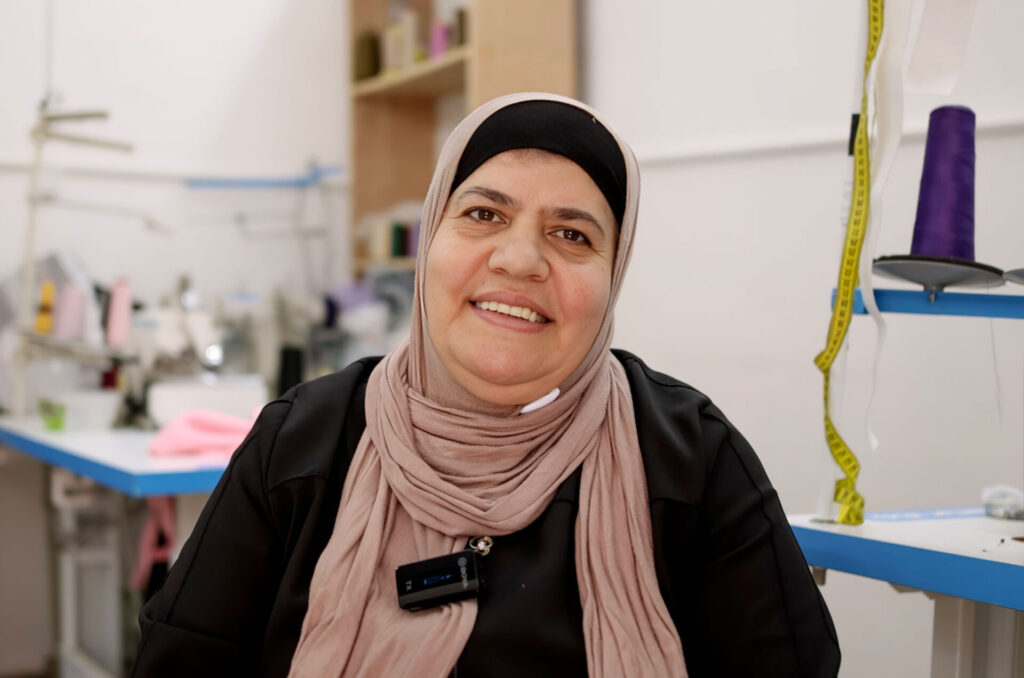Apr, 2025
Helping Gaza’s Children Heal From the Psychological and Emotional Scars of War Even as the Violence Continues
In Gaza, childhood looks very different than it should. War, displacement, and trauma have touched nearly every child. But in the middle of all that pain, something powerful is happening.
Anera, with generous support from READ Foundation, is hosting psychosocial support activities for children and teens in 12 areas across Gaza. The six month program has some 7,200 children between the ages of 4 and 11 participating, along with nearly 2,900 adolescents between 15 and 18.
Through group sessions, games, storytelling, and creative activities, kids are finding space to breathe again. They’re building confidence, learning to express what they’ve been through, and — maybe for the first time in a while — they’re laughing.
Tala’s Story: A Place That Feels Like Home
Tala is 17. She’s from Jabalia Camp, but like so many others, her family had to flee during the war. They are now sheltering in a school in Gaza City. That’s where she first joined one of Anera’s psychosocial centers.
“I come here to take part in awareness and support sessions that help us build our confidence,” Tala says.
“We learn how to deal with different situations in life. One of my favorite activities is storytelling — we each share something we’ve gone through, and we all learn from each other.
“The best sessions are the ones where we learn while having fun. They help us grow, but in a way that doesn’t feel heavy.”

"The best sessions are the ones where we learn while having fun."
“Here, we’re like one big family. It’s a safe, respectful place where we can say what’s in our hearts without being judged. Every time I come, I feel like I’m entering a beautiful world far away from depression, fear, and war.”
Tala says these sessions changed her. She used to be shy and quiet. Now she’s more confident, more open, and better able to handle what’s happening around her.
Tahani’s Perspective: Watching Her Daughter Come Back to Life
Tala’s mother, Tahani, saw the change too.
“Before Tala joined the activities, she was withdrawn. She stayed to herself and didn’t like being around others.”

"Before Tala joined the activities, she was withdrawn. But once she started attending, she opened up."
“But once she started attending, she opened up. She made friends. She started telling me what she’d done during the sessions — the games, the exercises, the group discussions. Even the way she treats her siblings has changed. She’s more patient, more understanding.
“I’m so glad I encouraged her to go. I want her to come out of this stronger — someone who knows her worth, loves herself, and surrounds herself with good people.”
Mesk’s Story: From Silence to Smiles
Hayat is the mother of Mesk, a young girl who was deeply affected by the war. Their home was destroyed by Israeli forces. Even the UN school where they took shelter was bombed — three times.
“There was no safe place left,” Hayat says. “We kept moving. And Mesk… she shut down. She hardly spoke. She hardly smiled. It broke my heart.”
Then they found Anera’s psychosocial activities program.
“The change was almost immediate,” she says. “She started talking again. She smiled. She looked forward to the sessions. It was like the light came back into her eyes.”

"The change was almost immediate. She started talking again. She smiled."
“She started expressing her feelings. She was laughing again. I finally saw my daughter again — the daughter I thought I’d lost.”
Hayat says she’s deeply thankful for the support Mesk received.
“These children have lost everything. But thanks to this program, they’re starting to find themselves again. I just want my daughter to live like any other child — to have a normal life.”
Mohammad’s Story: “This Work Is Life”
Mohammad Issam Abu Zeina is a 28-year-old psychologist from Jabalia Camp. He’s one of the people running these sessions, and he says they matter more now than ever.
“We do a mix of activities — emotional expression, how to manage reactions, body awareness, and protecting kids from harassment or exploitation. One session is all about helping kids identify their emotions. Another is about understanding how to respond to tough situations. And in ‘My Body is Mine,’ we talk about privacy, safety, and trust.”
“When they first come to us, a lot of the kids are closed off. They don’t speak much. But we find other ways for them to express themselves — through writing or drawing — until they feel safe enough to open up.
“And it’s not just them. We need this work too. As psychologists, it helps us cope, too. It gives us meaning.
“For me, this isn’t just a job. This is life. This is what I want to leave behind — something meaningful in the lives of these young people.”
Thank You for Making This Possible
These stories — Tala’s confidence, Mesk’s smile, Tahani’s hope, Mohammad’s commitment — they’re possible because of this program. Because people believed that even in the hardest of times, children deserve care, connection, and healing.
Anera is proud to be part of that effort, and we’re so grateful to the support we're receiving from the Read Foundation. In Gaza, healing takes time. But with the right support, it’s happening — one child, one story, one safe space at a time.
Gaza
Gaza City Governorate

In 1984, Anera’s Gaza City office opened with three staff members. It is still at the same location today, but with 17 staff members. From that location, the team manages water and sanitation, education, healthcare, economic development, and humanitarian relief projects throughout Gaza.






